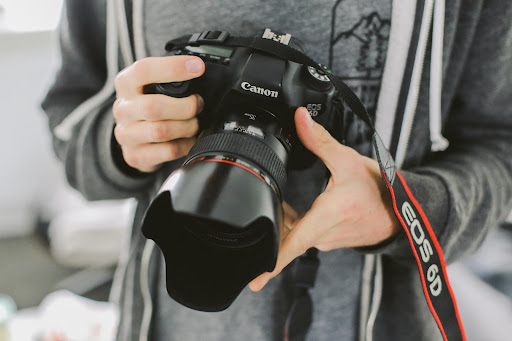If you are a photography lover, then you’ve probably thought about buying a professional camera. After all, such a camera is a great way to capture high-quality photos, and possibly market your work to a wider audience. Even if you don’t plan to publish your photos anywhere, you can still benefit from buying a professional camera. So if that’s what you’re planning, then here are some tips for choosing the best one for your money’s worth.
Table of Contents
Focus on the size
A lot of professional and semi-professional cameras tend to be a bit heavier, which is why it’s important to pick the right size. If you’re aiming to take casual photographs, then it is best to opt for a camera that will be easier to carry around.
It’s a misconception that a bigger camera will make you seem more professional.
Plus, carrying a large camera in an unsafe neighborhood can make you a target of a robbery. Hence, be sure to choose a camera that is compact and easy to manage, because your main goal should be to get into the habit of taking quality pictures.
Image quality matters as well
If you decided to upgrade from your smartphone, then it’s safe to say that you want to take prettier and better pictures. And the picture quality is one of the most important factors that every photographer cares about. However, if you don’t know much about this topic, it’s essential to remember that more megapixels don’t automatically mean better picture quality.
Every camera brand will yield different results, so if you’re unsure what to pick, then it’s best to see the examples of pictures taken with each camera. That will help you compare the photographs, and finally, decide which camera will work for you best.
Price is another important factor
Professional cameras tend to be pricier than regular models, but for a good reason. Professional cameras are used for magazine editorials, wedding photos, and everything else that requires higher-quality images. Some brands tend to be pricier than others, but some also have a wide price range, so anyone can choose something regardless of their budget. If you’re looking to buy a quality, branded camera, then check out where to buy Canon cameras online and then find the best model suitable for you. If you’re a beginner photographer, then it’s better to start with something more affordable, as it will be easier to handle. After you get better at photography, you can then move to more expensive and more complex cameras.
Don’t forget about the lenses
If you’re serious about your ambitions, then it’s essential to consider lenses as well. When you buy a new camera, you’ll automatically get a kit lens and the body.
The less you’d receive usually ranges between 18 mm and 55 mm. However, the precise numbers often depend on the brand that you choose. The lens that you receive in your kit is often enough in the beginning, mainly if you’re new to photography. But as your ambitions grow, you might want to start taking specific types of photographs, and in that case, you’ll need different lenses. The prices of additional lenses will vary, but you will always be able to find affordable ones.
Your first camera should be user-friendly
User-friendliness is an important factor, especially for novice photographers. Whether you plan to start vlogging, or just casually photograph your loved ones, user-friendliness plays an important role. Expensive and high-end cameras might be too complicated for inexperienced users, so it’s always a better idea to pick a simpler model with a clean and simple interface that will be easy to navigate. Advanced cameras are great, but only after you become more accustomed to professional photography. The majority of entry-level cameras tend to be DSLRs, so feel free to stick with one of those, until you master them. Once you do that, you can freely move to a more advanced model.
Conclusion
Buying your first professional camera is a lovely accomplishment, but it’s also important to choose the most suitable model that will work for you. These tips will help you get started, as long as you consider your goals and your budget. Your first professional camera is a long-term investment that you can only benefit from in the future.












